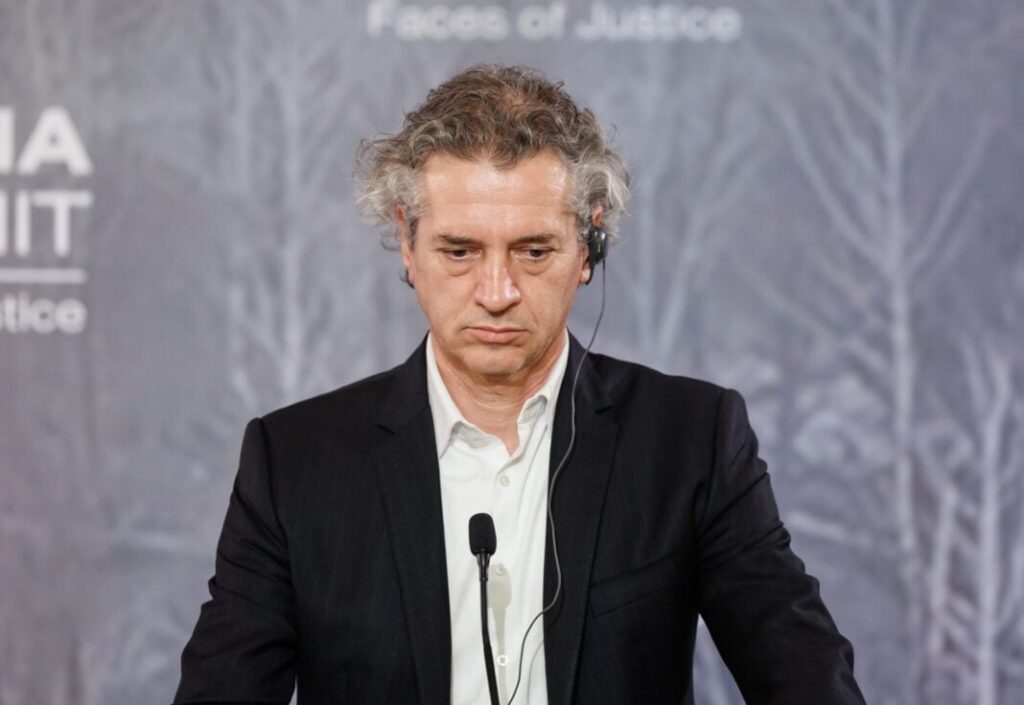The Commission of Inquiry of the National Assembly, which is investigating possible political influences on the police, has summoned the Prime Minister, the Minister of Justice and the Minister of the Interior, among others, for questioning.
The Commission of Inquiry into the possible political responsibility of public office-holders for suspected improper interference in the activities of the police and other state bodies in the areas of taxation and anti-money laundering, and improper political influence on the conduct or outcome of individual pre-trial proceedings in the areas of financial control and anti-money laundering, will hold its third urgent session on the 10th of July at 10 a.m., when it will examine evidence of interference of public officials in the police. Prime Minister Robert Golob will also be questioned.
The Commission also invited the following people for questioning: the Minister of Justice, Dominika Švarc Pipan, the Minister of the Interior, Boštjan Pokljukar, and the Secretary-General of the Government, Barbara Kolenko Hebl.
It is not yet known what the latter will be asked to discuss with the Commission, but it is clear that the Minister of Justice recently dealt quite a blow to the rule of law by hugging the repeatedly criminally charged Mayor of Ljubljana Zoran Janković, and it is also known that the former Minister of the Interior left Prime Minister Golob’s cabinet after she publicly admitted that the Prime Minister had pressured her and others when it came to personnel decisions within the police force.
Political pressures have been clearly documented
The content of a letter sent last year by the then-Minister of the Interior, Tatjana Bobnar, to the Prime Minister, Robert Golob, reveals the facts about the political pressures she witnessed in the police. In the letter, she pointed out that she could not do her job if she could not put together a team that she trusted and that was professional. “Your decision not to follow my proposal to appoint Boštjan Lindav is unprecedented in the history of the police”, she said, complaining that “Golob wants to depoliticise the police by politicising it”. She added that she would also report the allegations of political pressure to the Prosecutor’s Office of the Republic of Slovenia. In her letter, she accused Golob of implementing political pressure on her through his publicist Vesna Vuković, as well as putting pressure on the police. This conduct, Bobnar said, “is unprecedented in the history of the police” and revealed his plan of constantly emphasising “depoliticisation”, which Golob had mentioned all along. But it turned out to be the opposite, “Golob wants to depoliticise the police by politicising it,” she wrote in her letter.
“The fact that he told me Lindav would only receive a mandate if he cleaned the police of certain people on the basis of political criteria and the expectations of a political party and the Prime Minister is a clear case of political pressure on the acting Director-General of Police,” Bobnar was clear in her letter, citing Article 14 of the Constitution of the Republic of Slovenia, which protects people from arbitrary power.
“In my opinion, this is also an obstacle to the effective development of the system,” she said, adding that the same applies to the appointment of Slavko Koroš to the post of Director of the Directorate for Police and Other Security Tasks. In her opinion, the latter’s appointment was also rejected without clear explanations.
Golob demanded that Lindav violate the Constitution in order to get a full mandate
In a note to the Prime Minister, she also said that “the depoliticisation of the police will not be achieved simply by demolishing what the police became under the previous government.” She revealed that Golob had given her an ultimatum that Lindav would only be given a full mandate if he violated Article 14 of the Constitution, which clearly states that “everyone is guaranteed equal human rights regardless of nationality, race, sex, language, religion or political opinion”. “The democratisation and depoliticisation of the police are not a matter of changing the faces of the police. It is a gradual, slow and, above all, professional process. It cannot be achieved by approaches that initially led to its politicisation.”
What will the Commission of Inquiry reveal?
At the moment, the “depoliticisation” of the police is almost complete, and Darko Muženič, who for one reason or another was the person that Prime Minister Golob wanted to be the head of the National Bureau of Investigation, is now in charge. Is this a case of personnel being set up so that the possible crimes of Golob’s former company Gen-I in the Balkans will not be investigated? The left-wing coalition has a majority in the Commission of Inquiry, so nothing other than the sweeping of the wrongdoings under the rug is to be expected.
Andrej Žitnik


